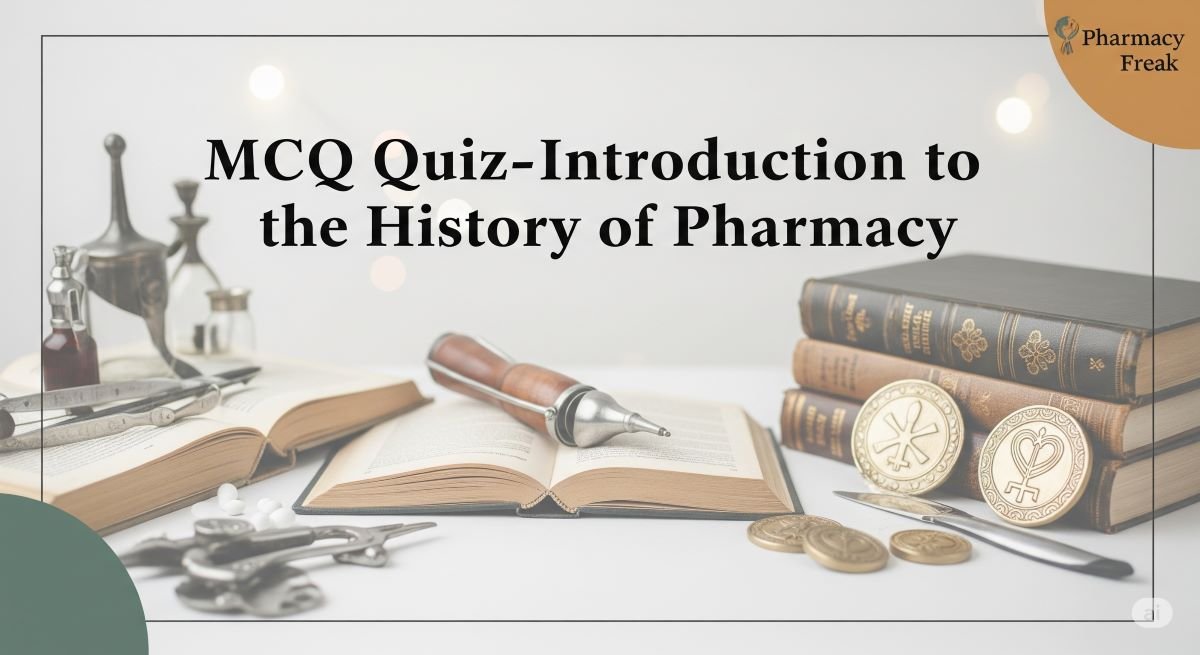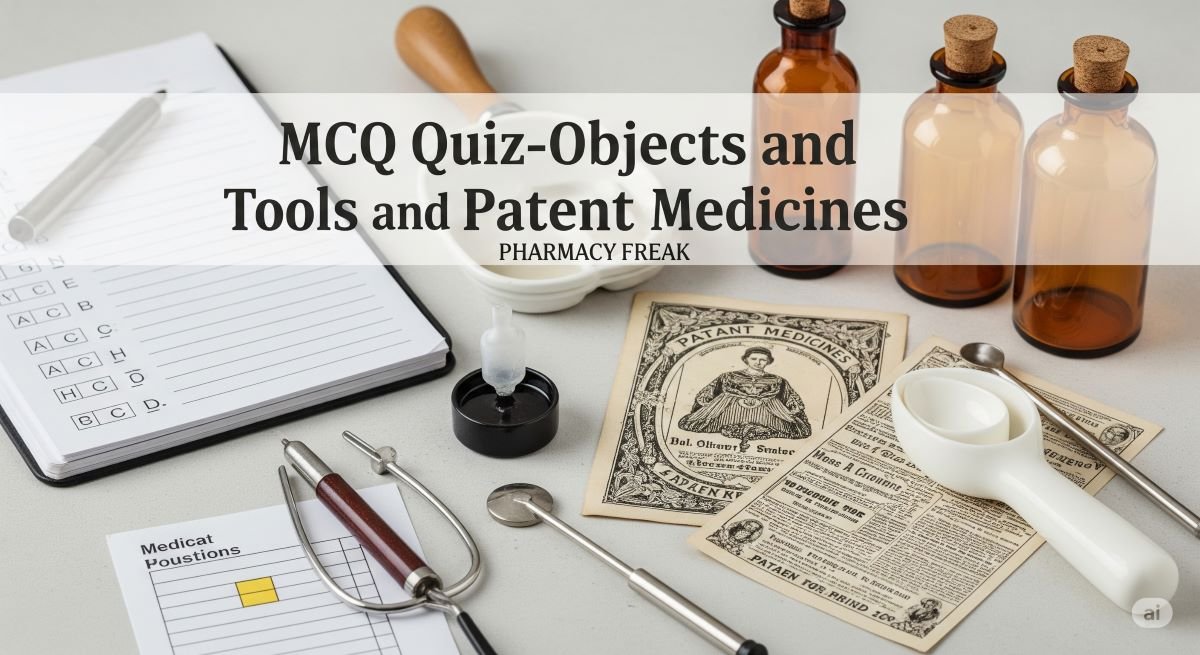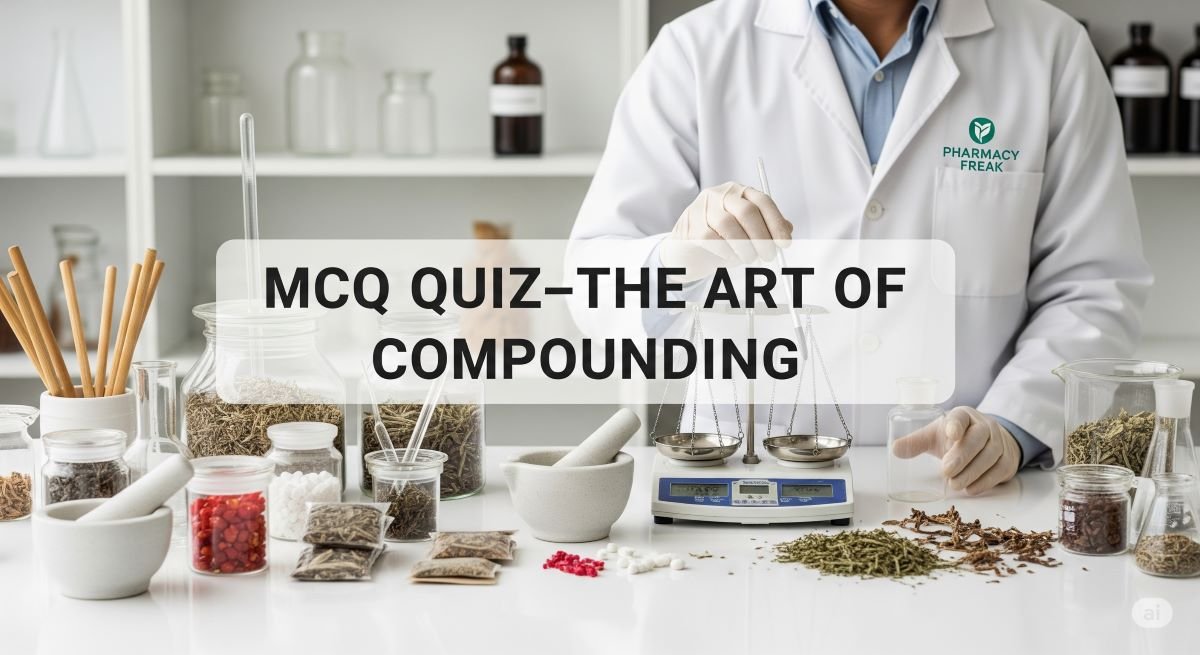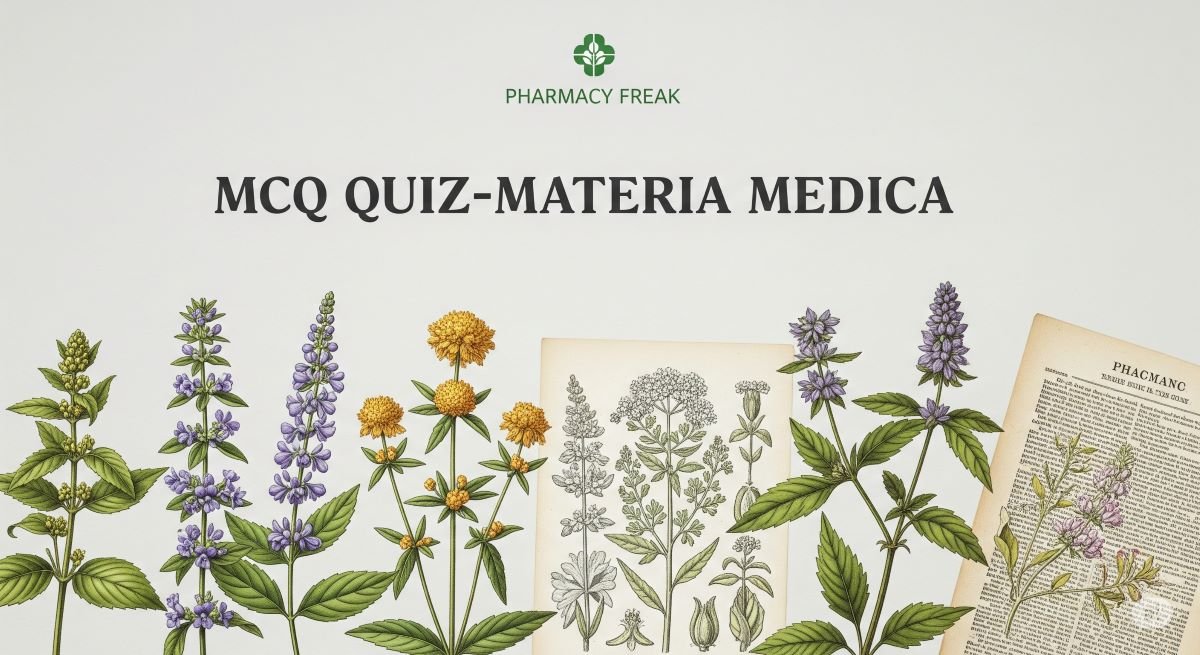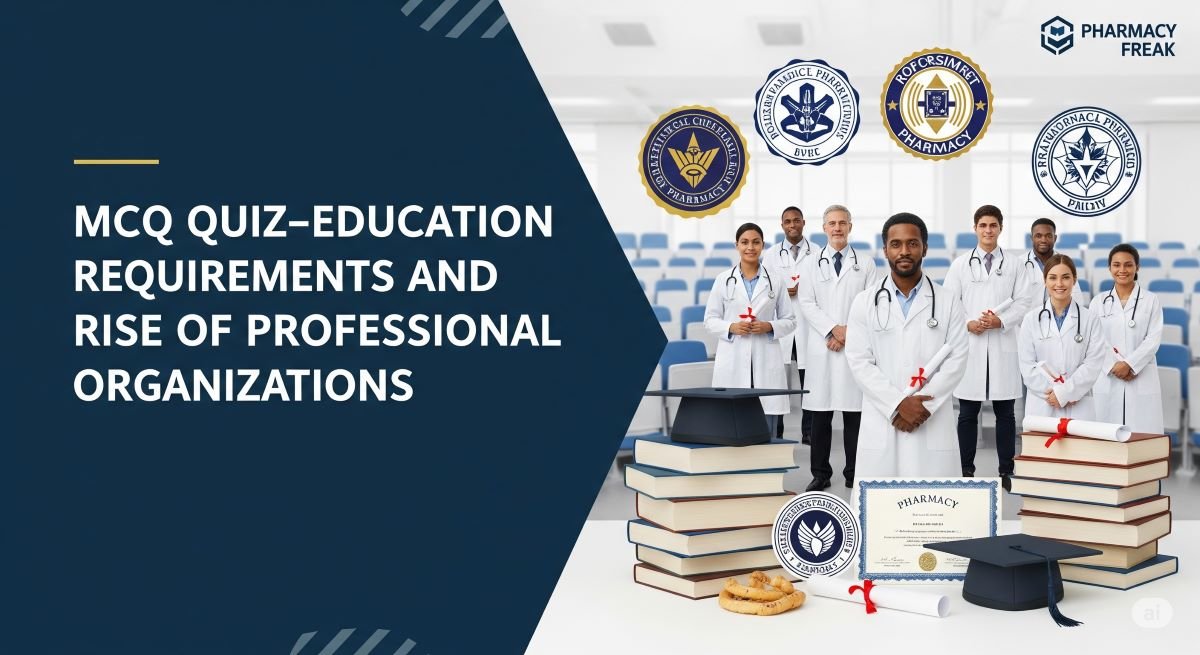

Unlock the Story Behind Pharmacy: History of Pharmacy MCQs
Knowing the history of pharmacy gives you context for how today’s practices developed and why pharmacists are trusted healthcare professionals. This MCQ guide covers the most important eras, figures, and turning points that have shaped pharmacy from ancient times to the modern era.
What’s Covered in History of Pharmacy?
This area explores the evolution of pharmacy from ancient civilizations, through the Middle Ages and Renaissance, to the scientific breakthroughs and professional standards of today. You’ll learn about famous pharmacists, major discoveries, landmark regulations, and the changing role of pharmacy in society.
What Will History of Pharmacy MCQs Test?
Core Focus Areas
Ancient and Medieval Pharmacy:
Expect questions on the origins of pharmacy in Egypt, Greece, China, and the Islamic Golden Age, as well as the roles of early apothecaries and herbalists.Influential Figures and Discoveries:
MCQs often ask about key individuals—such as Paracelsus, Galen, or William Procter—and their contributions to drug development and practice.Development of Pharmacy Laws and Ethics:
You’ll see questions about the establishment of professional standards, licensure, and ethical codes throughout different eras.Modern Pharmacy Practice:
Expect scenarios about the rise of community and hospital pharmacy, the impact of technology, and the expanding role of the pharmacist in patient care.Landmark Events:
Questions may cover milestones like the creation of the first U.S. pharmacy school, major public health campaigns, or important drug discoveries.
Why These MCQs Matter
Here’s the thing: understanding pharmacy’s history isn’t just about trivia—it helps you appreciate the progress, challenges, and ethical foundations that guide the profession today. The MCQs test your ability to connect past innovations and regulations to the way pharmacy is practiced now.
Tips for Success with History of Pharmacy MCQs
1. Connect Events to Impact:
Don’t just memorize dates—understand how discoveries and laws changed pharmacy practice and public health.
2. Recognize Key Figures:
Be ready to link important people with their contributions, whether it’s a new medication, a standard-setting book, or the founding of a school.
3. Think Chronologically:
Sometimes, MCQs will test your ability to place events in order. A mental timeline can help.
4. Spot Recurring Themes:
Progress in pharmacy often repeats: new medicines, debates about safety, and rising professional standards.
5. Link History to Today:
Choose answers that help you see how pharmacy’s past influences its current roles and responsibilities.
Building a Deeper Understanding
Mastering History of Pharmacy MCQs is more than just exam prep. It’s a way to connect with the profession’s legacy and understand your place in its ongoing story. Use each question to reinforce both your knowledge and your appreciation for pharmacy’s enduring impact on health.

